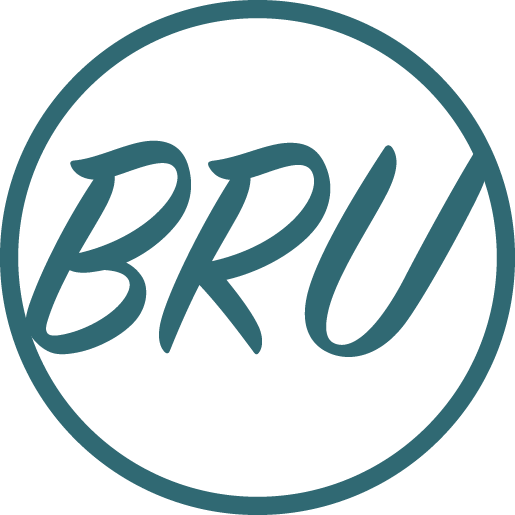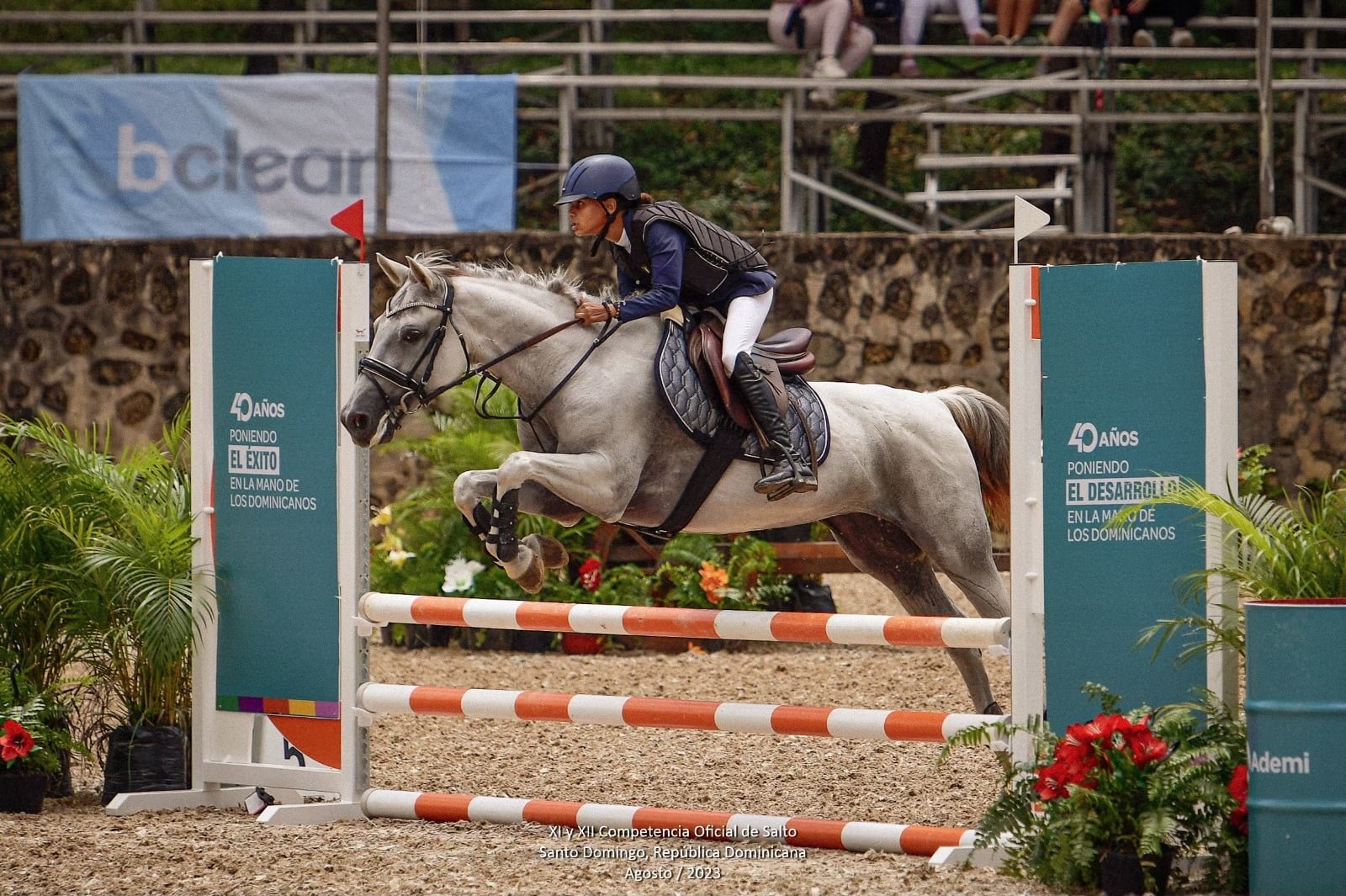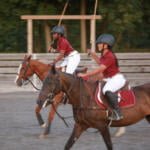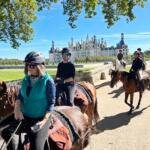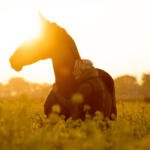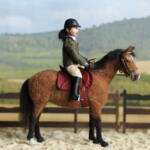Lucy Custard is a talented 14-year-old show jumper who grew up near Chicago and now lives in the Dominican Republic. Upon seeing the lack of diversity in the equestrian world and the financial barriers many riders face, Lucy’s mom, Makesha (Mak) Benson started making plans to help.
BRU spoke with Lucy and Mak about their shared love of horses, Lucy’s dreams as a rider, and Mak’s goals to use her years of professional experience in equity and advocacy to benefit the equestrian community.
This interview has been edited for length and clarity
BRU: Lucy, what first drew you to horses?
LC: I wanted to become a horseback rider ever since I saw the show Free Rein when I was about five. After that, I basically fell in love with horses, and I had always dreamed of them.
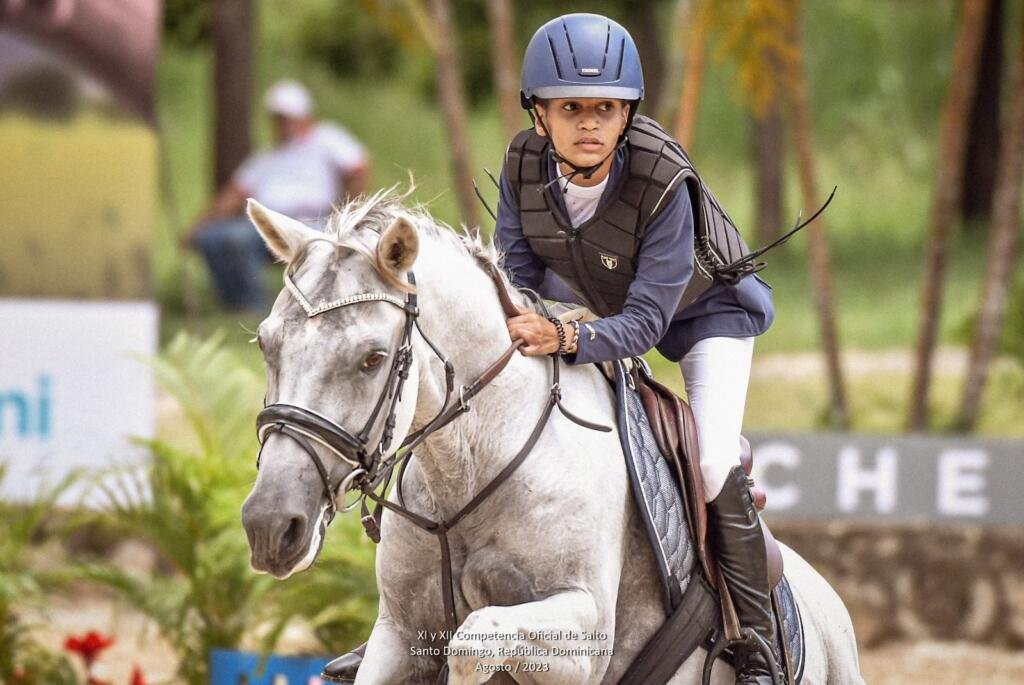
BRU: Mak, did you have any previous experience with horses?
MF: No, not really. I’d taken a couple of trail rides and had always liked the idea of horses—they’re beautiful—but I was terribly allergic so it really wasn’t a thing for me.
Once Lucy started riding regularly here in the Dominican Republic, my allergy situation just disappeared! It was incredible. Now I’ve taken a few lessons myself.
BRU: Did Lucy ride in the States?
MF: She wanted to take lessons, but it was super hard. We lived outside of Chicago, and there weren’t a lot of barns close to us. It was even difficult to Google “riding lessons” because we didn’t know what to ask for, really, and getting somebody on the phone felt impossible.
Once we found a place, they only had space because of a cancellation. The lesson fee was fairly typical, but it was a lot. When we came here to the island, Lucy had the opportunity to ride at our local barn, and training fees are much, much lower here, which made it appealing to us to have her ride as much as possible.
BRU: What was your first lesson like?
LC: I thought the reins were very complicated. My trainer, Diane, did a lot of yelling about the reins. She’s French, so her yelling voice sounded kind of scary. Now, I know that she just wants for us to do our best and isn’t mad, but she has to speak loudly because it’s difficult to hear on a horse.
MF: My first lesson was a mama lesson with some of the other students’ moms, and we got to have Prosecco after, which gave us all a little motivation (laughs). But I totally fell into it and wanted to ride more. I’m very impatient, so I wanted to canter immediately. I guess I thought that I could because I’ve been observing and paying attention through Lucy’s journey.
When you first ride, your body hurts, and you realize how difficult it is. There are so many things to remember and learn. It’s not what you think it might be before you start, but it’s still wonderful, and I have so much respect for what these young girls can accomplish with these huge animals.
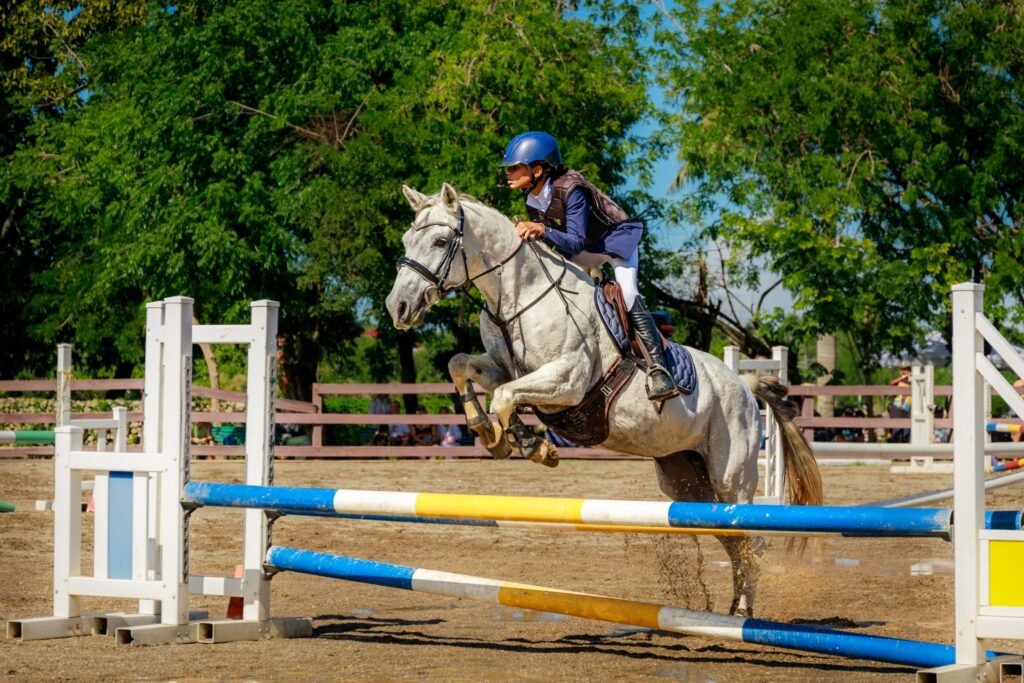
BRU: Tell me more about your trainers and your local barn.
LC: I train at Seahorse Ranch with Alex and Diane De Wazieres. They’re a father-daughter team. Alex helps me with my heels (laughs), and Diane’s an excellent rider who I really look up to. She helped me achieve my dream of getting a thoroughbred. She believes in me and pushes me to do things that I’ve never done before.
MF: It’s a very family-friendly barn and can be somewhat organized chaos. I think it’s magical for beginners, especially taking a first lesson in that environment and seeing the girls on the team ride. The riders don’t have a lot of grooms to do stuff for them, so they work hard. It’s not just about getting on the horse and taking a lesson.
BRU: You have two horses, your first horse, Scarlett, and your new horse. What do you love about them?
LC: Scarlett is so kind and patient. If you make her super annoyed, she might try and bite you, but she loves me. I think I’m her first little girl, so she likes me (laughs).
MF: Someone gave her to us when she was twenty-two. She hadn’t jumped regularly, but she does now, and she loves it. She acts like a much younger horse. But, we knew Lucy would need a younger horse soon because it’s a ton of stress to transport Scarlett repeatedly to Santo Domingo and to train as hard as we’ll need to for Lucy to progress
LC: My new horse’s name is J’Tadore Freedom; we call him Freedom. He’s almost four, and he’s a bay Thoroughbred.
MF: He’s still a baby and has just started training, but Lucy has been on him a little bit. We’re being careful to move slowly and do things right for both of them. That’s so important. We’re working on his ground game and really targeting his behavior.
LC: He’s mouthy. He’s always biting peoples’ butts.
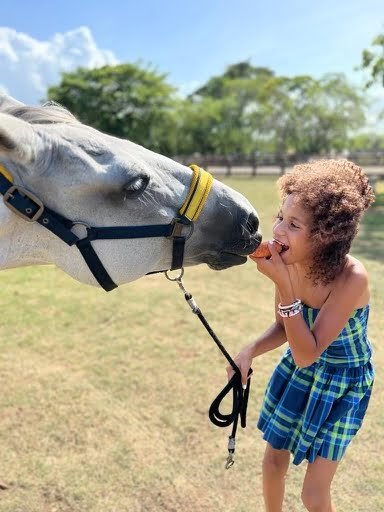
BRU: Lucy, what are some of your goals and aspirations?
LC: My main goal this year was to get a thoroughbred, and that’s happened, so I’m really happy about that. I’m hoping to continue competing in Santo Domingo—I’ve been three times before. In the future, my main goal is to be a Grand Prix show jumper.
BRU: What have horses taught you?
LC: I’ve learned that they’re sensitive animals, so you have to be kind to them (even if they try to bite you). But you do still have to show them that you’re the boss. When things go wrong, it’s never the horse’s fault—it’s mainly the rider’s fault.
MF: Lucy has ADHD, and I’ve seen her benefit a lot from being around the horses. There are a lot of distractions at the barn, and she has to handle horses in a very specific way. Being thoughtful and careful about safety and how she does things has helped her ability to focus and task. Bonding with her horses has also improved her social anxiety.
BRU: Have you encountered any difficulties as you’ve learned and progressed?
LC: Falling. That’s my main one (laughs).
BRU: How have horses made your life better?
LC: Anytime I think about them, I just smile super big (laughs). I think about them a lot.
MF: Oh my gosh, the Instagrams, the TikToks—all of it is horse, horse, horse, horse, horse.
LC: I love being able to see them. Anytime I see Freedom, I run over to his stall and give him lots of love. Scarlett gets lots of hugs and love too.
I feel like—no offense, Mom—but I feel like Seahorse is my home because it’s my favorite place to be. If I don’t want to be around anyone, I go to Freedom’s stall and hang out with him.
MF: It’s so hard not to fall in love with these animals. They’re so intuitive and so smart. As a mom, it’s wonderful to watch her realize that this dream could be real.
She’s only been riding regularly for a couple of years, and she’s doing really well. It’s thrilling to watch her ride.
BRU: What advice would you give someone who wants to be more involved with horses?
LC: You can achieve your dreams. This has always been one of my dreams, and it came true.
MF: Dream as big as you can. Whatever that thing is, really get after it, even if it seems impossible, or too big, or unachievable—it is possible. I hate to be cliché, but it really is about dreaming big. Consider the possibilities that are not right in front of you.
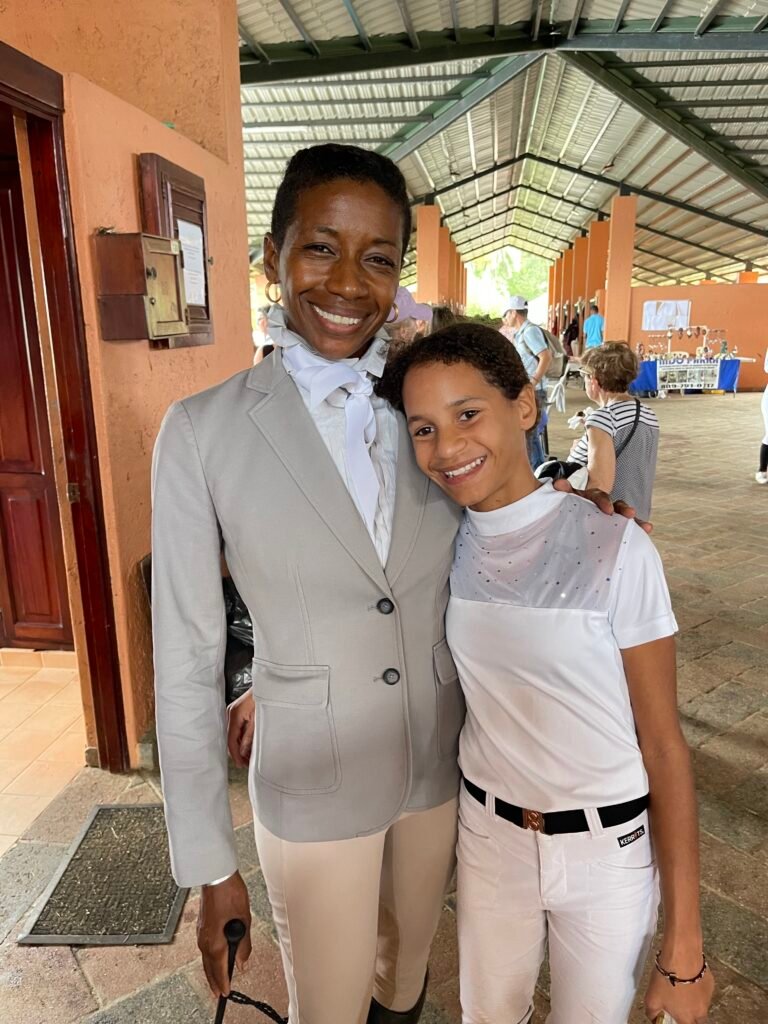
BRU: Mak, is that part of what inspired you to start Black Girl Equestrian?
MF: Yes. We’re doing this for Lucy and for girls like her who would otherwise never know that riding a horse was even possible for them. I spent years doing deep equity work within education. I’ve also done a lot of campaign management, community work, and advocacy work. I thought I was hanging up my cape when we came here because it took its toll.
When Lucy fell in love with jumping though, I quickly learned that being involved in this lifestyle is not possible for most people. Horses are good for humans, and there’s a mental health and wellness component to equine activities that a huge segment of the population can’t access.
I had this urge needling at me to get involved. We don’t have quite the same sort of stable elitism here that might exist in the States or other parts of the world, and almost everyone here is brown—but most kids who compete are still in the upper tier socially and economically.
That’s what inspired BGE—wanting to help other girls here in the Caribbean or in the US who want to ride and just can’t afford it. In the States, this is such a huge issue. I think around four percent of equestrians in the US are Black. That lit a little bit of a fire underneath me.
BRU: What are your short-term and long-term plans for BGE?
MF: We can’t do it all, so it’s about helping who we can. Giving people experiences with horses is an important step, such as lessons or horsemanship camps.
We need to get more youth invested in the idea that they can participate and ride horses. Then, it’s about getting after equine related industries and encouraging stables to provide more opportunities to underrepresented communities.
BRU: How can a program like this benefit the industry in the long run?
MF: I think bringing more diversity to the equestrian community will enrich it and broaden the perspectives of those who are already participants.
Also, the data shows that the horse industry is about a 300 billion dollar industry, and that’s only scratching a very small portion of the potential market. Having more people involved would create more job opportunities and impact related industries positively. It would benefit everybody.
To follow Lucy’s journey, connect with her on Instagram. To learn more about Black Girl Equestrian, get involved, or donate, email Mak at blackgirl.equestrian@gmail.com or follow BGE on Instagram.
Want to nominate someone for a feature interview? Please get in touch!
